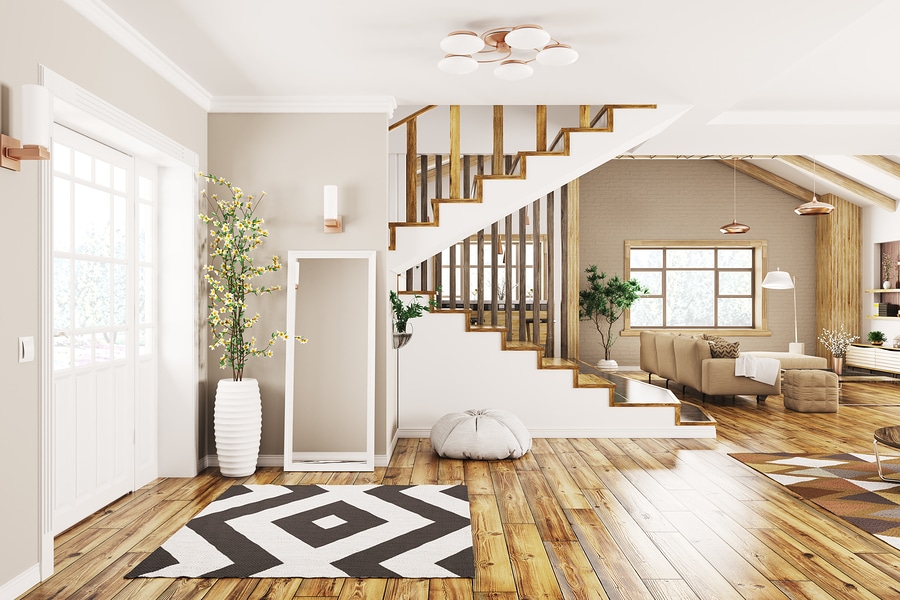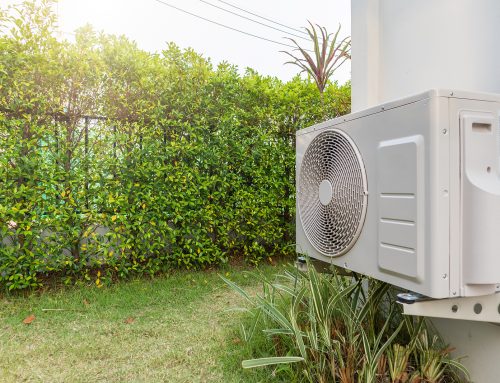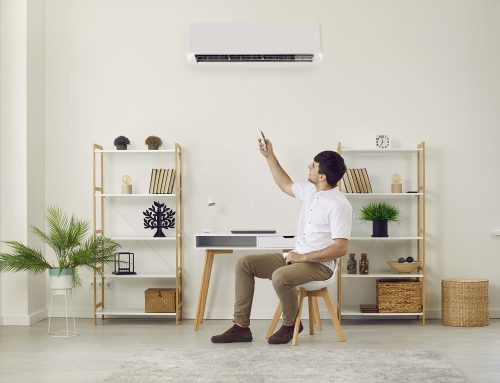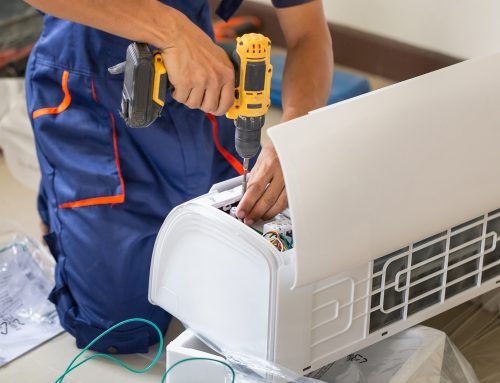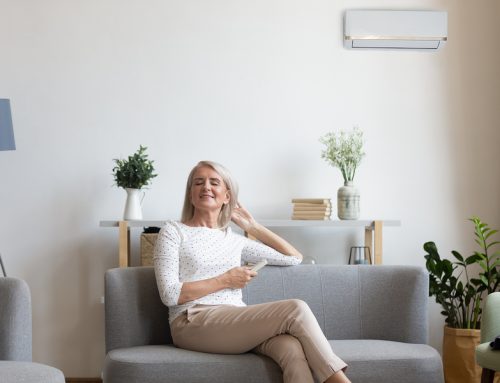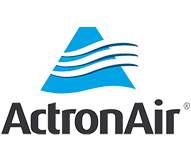The main purpose of your air conditioning system is to bring the temperature down in your home when it heats up outside.
However, that isn’t the only thing that matters when it comes time to planning for residential air conditioning in Brisbane – it’s just as important that you choose one that also doubles as a dehumidifier.
Unfortunately, many homeowners simply don’t realise that this is something they need to consider.
While not quite as oppressive as the parts of the state that are further north, Brisbane can get quite humid from time to time.
Make no mistake, while high temperatures aren’t pleasant, it’s the humidity that’s sometimes the real problem!
Why moisture makes things so uncomfortable – and how air conditioning reduces humidity
Simple: high humidity makes things feel hotter than the thermostat says it is.
Just go outside on a humid day and you’ll see what we mean – while the mercury may say that it’s only 25ºC, the humidity can make it feel much warmer than that!
That’s because humidity influences evaporation, with high humidity meaning evaporation takes a lot longer.
Our natural way of cooling down is sweat – on top of making that cool breeze even more refreshing, as sweat evaporates, it takes heat with it (incidentally, this is the same principle that powers your air conditioning).
High humidity means that your sweat isn’t able to evaporate – and that in turn means you’re going to have to stay warm, unfortunately!
By choosing an air conditioning system that doubles as a dehumidifier, you’ll be able to keep the inside of your home dry – and therefore, cooler and more comfortable.
Understanding relative humidity
While it might sound like we’re just being pedantic, this is actually an important distinction to make!
Relative humidity refers to the amount of moisture in the air relative to the maximum amount of moisture the air can hold at that temperature before it starts to form condensation. When it comes to A/C and humidity, this is what we’re talking about.
There’s a lot more to it, but for today’s topic, all you really need to know is that raising and lowering the temperature automatically changes the relative humidity, even if the actual water content stays the same.
Simply changing the temperature can change the point where moisture starts to form condensation and mist on surfaces.
Understanding this is crucial to understanding how your air conditioning system is able to bring down humidity.
So, now that we’ve gotten that out of the way…
How does air conditioning bring down relative humidity?
Have you ever wondered why dew only appears during the winter months?
It’s because when the temperature drops overnight, that automatically raises the relative humidity, as well as the condensation point. Even a normal amount of moisture in the air can start resulting in dew the next morning if the temperature drops low enough.
That’s basically what happens when your air conditioner runs.
When the air sucked into your air conditioner is cooled, this has the side-effect of automatically raising the relative humidity for the air that it’s processing, pushing it closer towards the point where the moisture starts to condense.
And when it reaches this happens, all of the dew and condensation that forms drips into the drain pan in your air conditioning system instead of being blown back into your home.
The end result? A less humid and more comfortable home!
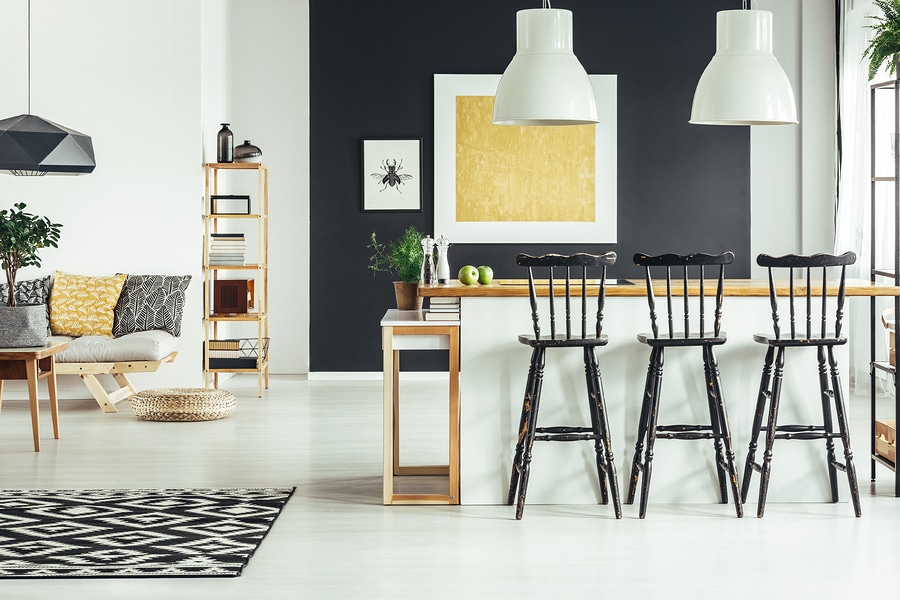
How humidity impacts aircon in Brisbane’s most humid areas
Okay, you know how your aircon brings down the humidity – picking a system for your home air conditioning in Brisbane should be a piece of cake, right?
Unfortunately, it isn’t that easy!
Deciding which type of system for your air conditioning installation
Out of the two main types of air conditioner, our air conditioning specialists have always preferred reverse-cycle air conditioning.
While evaporative does have its advantages in some specific situations, in our experience, reverse-cycle is way more powerful and flexible.
And one of the areas where it absolutely blows evaporative cooling out of the water is if you live in a humid part of Brisbane.
Evaporative air conditioning has one big difference with reverse-cycle cooling: instead of using specially-designed refrigerants, evaporative cooling uses water.
Unfortunately, this has the side-effect of leaving a lot of humidity in the air (this is why you need to leave the door open when using evaporative cooling), making your humidity problem even worse.
Of course, that isn’t the only issue – it also reduces the amount of cooling your evaporative cooling is able to push out.
If humidity is a constant worry in your neck of the woods, then reverse-cycle air conditioning is the best way to go!
Do you need an air conditioner with a dedicated dehumidifier option?
While the inherent dehumidifying effect of your air conditioning system is sufficient for most homes in Brisbane, there are some areas where you might need a little bit more…
If you live in a particularly humid area, you’re going to need extra dehumidifying power – you’re going to need a system with a dedicated dehumidification option.
These add-ons use the same basic principle as other reverse-cycle air conditioners, except scaled up to handle more moisture and humidity than your standard aircon system.
Many modern systems that feature dedicated dehumidifying functions even allow you to set the exact level of relative humidity, giving you the power to set your exact comfort level!
And there’s even better news: dedicated dehumidifying functions can be added to most ducted air conditioners in Brisbane, saving you from having to schedule another air conditioning installation.
Can your system handle the load?
While most reverse-cycle air conditioners are pretty good at getting rid of humidity, there are some issues that come with that.
Namely, the fact that in a lot of cases, humidity can put extra load on your system, and in some cases can even result in more frequent air conditioning repairs and service as your air conditioner wears out faster than it should.
This is especially problematic when it comes to commercial air conditioning, as many business operations may generate levels of humidity that make work incredibly uncomfortable.
The only way to avoid this is to make sure your property has the best-suited system right off the bat.
And that’s where system design comes in…
Choose Tri-Tech for commercial and residential air conditioning in Brisbane
A lot of careful thought and planning goes into home air conditioning in Brisbane – humidity is important, but it isn’t the only thing we need to look at…
We’ve said it before, and we’ll say it again: the most important part of air conditioning installation in Brisbane isn’t the installation process itself, but the system design process!
System design is all about one thing: ensuring your property has its home comfort needs perfectly met by its air conditioning system.
To achieve this, our air conditioning team needs to look at a lot of different variables:
-
Orientation, sunlight, and shade
- Insulation
- Construction materials
- Appliances and fittings
- Room volume
In our mission to find you the perfect system, that includes looking at humidity.
It’s extra work, sure – however, it ensures that you’re left with a system that better matches your needs, as well as an installation process that goes by way faster!
Of course, it isn’t just air conditioning installation we can help you out with – when it comes to aircon in Brisbane, we can help out with air conditioning repairs, upgrades as well as routine service inspections to keep your system running.
All you need to do is get in touch!
Find out how our air conditioning experts can help you – give us a ring on (07) 3394 0222 or click here to enquire online.

